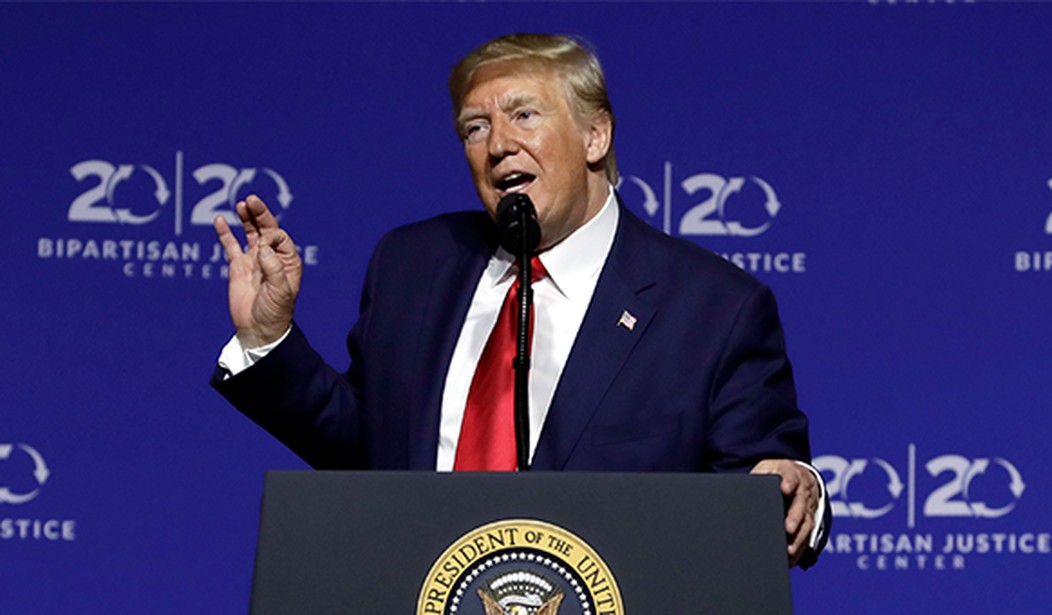Now that the House is set to impeach President Trump for what its Nadler-led Judiciary Committee decided were “impeachable offenses,” it is time to consider what will or, more important, should happen in a Senate trial. In my view, no matter the utter lack of substance in the articles of impeachment certain to be approved by the House this week, the president should prepare to mount a vigorous defense and Senate Republican leaders should assist, not impede him.
As an Impeachment Manager in the 1999 trial of former President Clinton, I learned very early that an impeachment trial in the Senate has little in common with “normal” trials that take place daily in federal and state courtrooms according to well-established rules of procedure.
Each and every impeachment that crosses the Capitol Rotunda from the House to the Senate, comes without any pre-existing rules of procedure for the trial, whether for a federal judge or a president of the United States. The Senate must adopt by simple majority vote unique rules for the conduct of each and every impeachment trial, including whether to allow live witnesses to testify and the scope of evidence to be admitted. These are extremely important tactical decisions and Majority Leader Mitch McConnell must not allow Minority Leader Chuck Schumer to massage them into pablum.
It is important the president keep these procedural nuances in mind as he decides who will represent him in the upcoming trial, and what strategy to pursue.
The situation will be very different from the one Clinton faced two decades ago. In January 1999, the Democrat president confronted a Republican-led Senate. Yet, even in those circumstances, the Senate adopted procedures for Clinton’s trial that severely handicapped the ability of the House Impeachment Managers (including myself) to prosecute the case against him – allowing no live witnesses and severely restricting the evidence that could be presented.
Recommended
The restrictive rules under which we were forced to proceed in January and February 1999, reflected the fact that the Senate – even under Republican control – had no stomach for an impeachment trial, notwithstanding the strong evidence developed by the Independent Counsel’s Office and the House Judiciary Committee that Clinton clearly had violated federal criminal laws against perjury and obstruction of justice.
Now, 21 years later, a Republican president will face a Senate majority of his own party. Trump would be well-advised not to presume the GOP-controlled Senate will necessarily protect his interests in establishing the parameters for his trial. It is Trump’s future that will be on the line there, not that of any Senator and the forum in which he defends that legacy must be one that allows him to present as broad a defense as he desires.
Unlike the substantive articles on which Clinton was impeached, those presented by the House Judiciary Committee against Trump are astounding in their weakness. They lack even the pretense of substance, relying on the vaguest notions of “abuse of office” and “obstruction of Congress.” Thrown into the mix at the last minute by the Judiciary Committee in its report, are bizarre charges that the president is a “threat to national security” and that he “betrayed the nation.” Rather than strengthen the already weak case developed by the Judiciary Committee (and the Intelligence Committee before it), such hyperbole simply confirms that the report is nothing but a political hit job.
With this background, the only substantive record with which the Senate, the American people, and history will be able to fairly judge President Trump, will be that presented publicly in the Senate trial. In fairness to the president and to that history, this must include live witness testimony, including from the so-called whistleblower, along with any others the president desires. This is the only way for him to place into full and fair context all that body of evidence the House Democrat majority chose to ignore.
To present that defense, Trump must have a legal team chosen by him and for him -- strong, single-minded individuals dedicated to vindicating him completely, and savvy as to the Senators who will determine his constitutional fate. Members of the team should possess a variety of skills but be fully complementary. Some of those members may already be working with Trump, others not yet, but each and every one must be mindful that they will be defending not only a president unjustly accused, but a Constitution deeply damaged in the rush to judgment by House Democrats.

























Join the conversation as a VIP Member